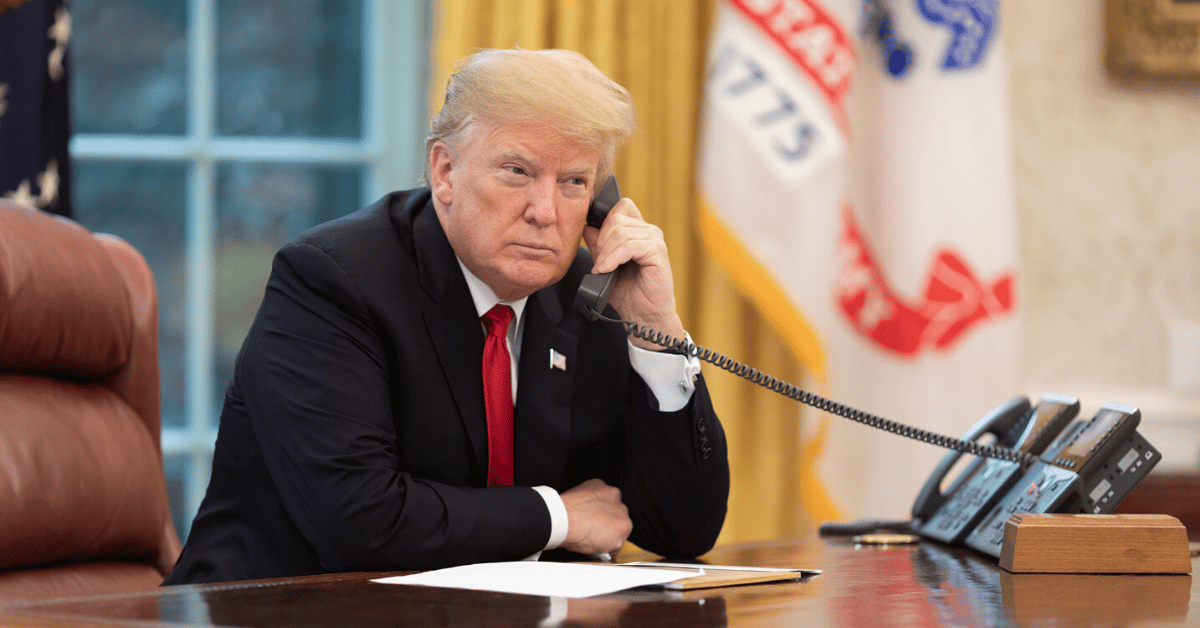




One of the first orders signed by President Donald Trump after moving back into the White House was his executive order on birthright citizenship.
I actually liked the order, but I thought it only had about a 10% chance of success, at best. The order was immediately challenged, and Trump lost the case and the appeal; however, the case is now set to go before the U.S. Supreme Court.
When Trump issued the order, as noted above, I did not give it much of a chance to succeed. However, if you read my report at the time, there was a line in it that I thought gave the order a chance.
This was the section where Trump qualified those who would and would not be eligible for birthright citizenship.
The order stated, “(1) when that person’s mother was unlawfully present in the United States and the father was not a United States citizen or lawful permanent resident at the time of said person’s birth, or (2) when that person’s mother’s presence in the United States at the time of said person’s birth was lawful but temporary (such as, but not limited to, visiting the United States under the auspices of the Visa Waiver Program or visiting on a student, work, or tourist visa) and the father was not a United States citizen or lawful permanent resident at the time of said person’s birth.”
The fact that Trump specifically cited people unlawfully entering the country was the key to this because it presented birthright citizenship as a reward for someone who broke the law to enter this country, a benefit that should surely not be enjoyed.
The order was collectively challenged by the American Civil Liberties Union, ACLU of New Hampshire, ACLU of Maine, ACLU of Massachusetts, Asian Law Caucus, State Democracy Defenders Fund, and Legal Defense Fund.
Anthony D. Romero, executive director of the American Civil Liberties Union, argued, “Denying citizenship to U.S.-born children is not only unconstitutional -- it’s also a reckless and ruthless repudiation of American values. Birthright citizenship is part of what makes the United States the strong and dynamic nation that it is."
He continued, “This order seeks to repeat one of the gravest errors in American history, by creating a permanent subclass of people born in the U.S. who are denied full rights as Americans. We will not let this attack on newborns and future generations of Americans go unchallenged. The Trump administration’s overreach is so egregious that we are confident we will ultimately prevail.”
Trump lost below, and he lost his appeal, with judges at every level reaming the administration for daring to mess with a key element of the Constitution, but the concept at issue is something that is clearly being abused and needs to be addressed.
The fact that the justices are even taking up this case is a positive sign, as the Court tends to respect lower court rulings when they are consistent throughout a case, but not necessarily in this instance.
Arguments in the case will be heard on May 15, and it goes without saying that Trump will have at least two justices who will be sympathetic to his argument, but can he get three more to cross over?
Acting U.S. Solicitor General Sarah Harris argued, "These cases -- which involve challenges to the President's January 20, 2025 Executive Order concerning birthright citizenship -- raise important constitutional questions with major ramifications for securing the border.”
Smuggling pregnant women over the border is a business for the cartels and human traffickers, solely so they can have their child on U.S. soil, making their child a citizen, eventually paving the way for them to get a green card and residency status through chain migration. This is a citizenship loophole that I would love to see closed. For me, this will be the most anticipated ruling the Court has coming in its next term.



